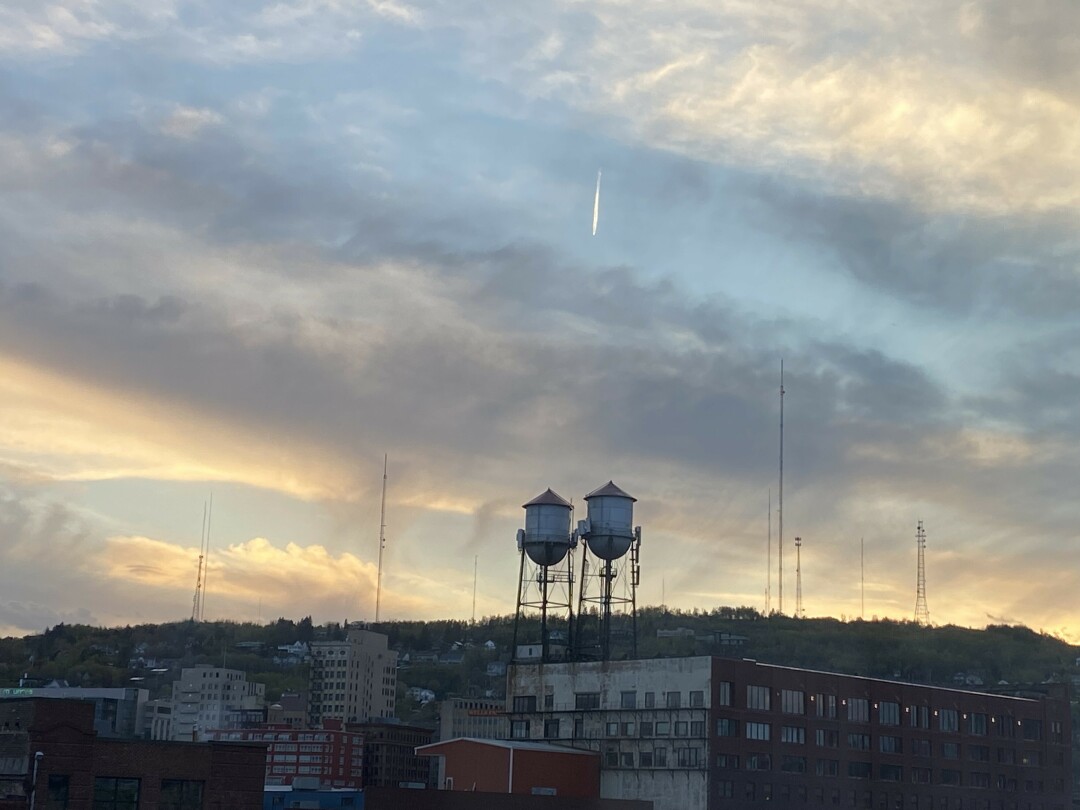News & Articles
Browse all content by date.

Photo by Richard Thomas
In the 1989 film "Say Anything," a young man courts the class valedictorian during their senior year of high school. One of the songs from this movie was “In Your Eyes” by Peter Gabriel. And even though it’s a romantic comedy-drama, I find myself reflecting on some of the lyrics from that song as I write about climate change.
“I don’t like to see so much pain. So much wasted and this moment keeps slipping away. I get so tired working so hard for our survival. And the grand facade, so soon will burn. Without a noise, without my pride. I reach out from the inside.”
As we watch the numerous climate events unfolding around the world, we can also see the pain that is being experienced by millions of people. We can see so many of our natural resources being wasted and various species slipping away.
For those of us working on the front lines of climate change, we are very tired – mentally, emotionally and physically.
At this moment, there are major wildfires in Arizona and New Mexico. The Colorado River and Lake Mead are at their lowest water levels in recorded history. Cities throughout the Southwest and Midwest are breaking records for high temperatures. CO2 levels continue to rise. And there’s even a heat advisory for the Northland.
While there are some very dedicated and compassionate people in our city who are speaking up about climate change and talking about how we can move forward, there are others who are saying very little or nothing at all. For whatever reasons, there are too many of us who are refusing to acknowledge or accept the climate reality that surrounds us.
What’s holding us back from saying anything?
Thirty-four years ago, on June 23, NASA scientist James Hansen spoke to Congress. He testified that “The greenhouse effect has been detected, and it is changing our climate now.”
That day was the hottest June 23 on record in the nation’s capital. And the summer of 1988 was the hottest summer on record in our country.
It’s 34 years later and we are now facing more extreme and intense climate events. And more studies and reports are coming out about the mental and emotional stress that we are carrying around inside of ourselves. More people are experiencing anxiety, depression and anger.
It’s vitally important that you and I find our voices. It’s time to talk about what we’re seeing, what we’re feeling and what we hope for. In this climate crisis, we must reach out from the inside and bring light to what hides deep within us.
How do you feel when you hear that we’ve lost 28 percent of our bird population, there’s microplastics in the lake, CO2 levels continue to rise and the urban heat index is elevated?
What do you think our city should do to address the accelerating number of climate challenges coming to Duluth? Where do we begin to help and protect the most vulnerable people in our greater community?
Too many people don’t want to talk or even think about our climate reality. How many of us are trying to turn our backs to what’s happening around us? How many of us are walking away with our eyes and ears closed?
In his book "Disobey," Frederic Gros wrote, “why have we said nothing in the face of imminent catastrophe, why do we still remain today with dangling arms and our eyes trying – I won’t even say resigned – to look elsewhere? Why have we let this happen, why have we behave spectators of the disaster?”
In the spring of 2021, the Duluth City Council passed a resolution acknowledging the climate emergency facing our city. But it’s disturbing that more people are not talking about climate change.
We need to begin testifying to our city’s leaders and stakeholders about why our greater community needs to step up and do more to address this climate emergency. We need to stand up and remind them, as well as ourselves, how climate change will have a growing impact upon our individual and collective lives.
You and I need to find our voices and raise our collective consciousness, concern and compassion for the climate future of the city and the people whom we love and care about.
Make a phone call. Send an email. Write a letter. Hold a zoom meeting. Schedule an appointment.
Duluth, it’s time to testify.
| Tweet |

